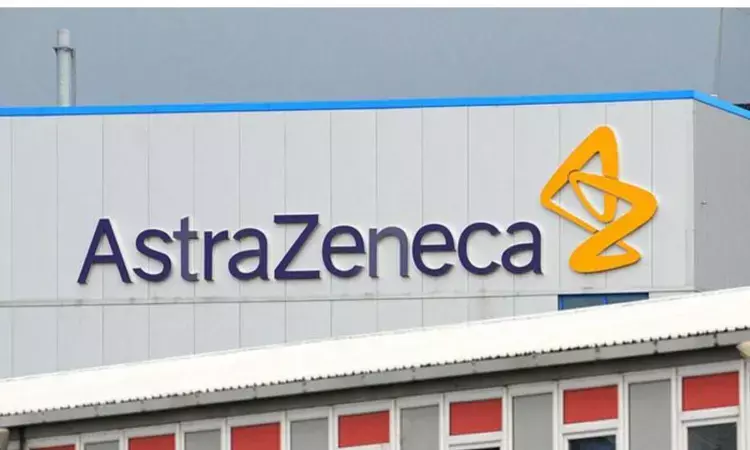- Home
- Medical news & Guidelines
- Anesthesiology
- Cardiology and CTVS
- Critical Care
- Dentistry
- Dermatology
- Diabetes and Endocrinology
- ENT
- Gastroenterology
- Medicine
- Nephrology
- Neurology
- Obstretics-Gynaecology
- Oncology
- Ophthalmology
- Orthopaedics
- Pediatrics-Neonatology
- Psychiatry
- Pulmonology
- Radiology
- Surgery
- Urology
- Laboratory Medicine
- Diet
- Nursing
- Paramedical
- Physiotherapy
- Health news
- Fact Check
- Bone Health Fact Check
- Brain Health Fact Check
- Cancer Related Fact Check
- Child Care Fact Check
- Dental and oral health fact check
- Diabetes and metabolic health fact check
- Diet and Nutrition Fact Check
- Eye and ENT Care Fact Check
- Fitness fact check
- Gut health fact check
- Heart health fact check
- Kidney health fact check
- Medical education fact check
- Men's health fact check
- Respiratory fact check
- Skin and hair care fact check
- Vaccine and Immunization fact check
- Women's health fact check
- AYUSH
- State News
- Andaman and Nicobar Islands
- Andhra Pradesh
- Arunachal Pradesh
- Assam
- Bihar
- Chandigarh
- Chattisgarh
- Dadra and Nagar Haveli
- Daman and Diu
- Delhi
- Goa
- Gujarat
- Haryana
- Himachal Pradesh
- Jammu & Kashmir
- Jharkhand
- Karnataka
- Kerala
- Ladakh
- Lakshadweep
- Madhya Pradesh
- Maharashtra
- Manipur
- Meghalaya
- Mizoram
- Nagaland
- Odisha
- Puducherry
- Punjab
- Rajasthan
- Sikkim
- Tamil Nadu
- Telangana
- Tripura
- Uttar Pradesh
- Uttrakhand
- West Bengal
- Medical Education
- Industry
AstraZeneca Imfinzi plus chemotherapy approved in China for locally advanced or metastatic biliary tract cancer

Imfinzi (durvalumab) is a human monoclonal antibody that binds to the PD-L1 protein and blocks the interaction of PD-L1 with the PD-1 and CD80 proteins, countering the tumour's immune-evading tactics and releasing the inhibition of immune responses.
Cambridge: AstraZeneca’s Imfinzi (durvalumab) has been approved in China for the 1st-line treatment of adult patients with locally advanced or metastatic biliary tract cancer (BTC) in combination with chemotherapy (gemcitabine and cisplatin).
The approval by China’s National Medical Products Administration (NMPA) was based on the primary results from the TOPAZ-1 Phase III trial published in the New England Journal of Medicine Evidence, as well as a prespecified exploratory analysis of an additional cohort of patients in China.
BTC is a group of rare and aggressive cancers that occur in the bile ducts (cholangiocarcinoma) and gallbladder. An estimated 211,000 new patients are diagnosed with gallbladder and biliary tract cancer each year, and nearly one in five patients diagnosed is in China. These patients have a poor prognosis, with approximately 5% to 15% of patients with BTC surviving five years.
Shukui Qin, MD, President of Nanjing Tianyinshan Hospital of China Pharmaceutical University and national leading principal investigator of the trial in China, said, "Over the past decade, there has been little progress in the treatment of advanced biliary tract cancer. However, the successful results of the TOPAZ-1 trial confirmed that durvalumab plus routine chemotherapy has statistically significant and clinically meaningful overall survival and progression-free survival benefits for these patients. This approval provides a new and better option for the treatment of these patients in China.”
Dave Fredrickson, Executive Vice President, Oncology Business Unit, AstraZeneca, said, “With this approval for Imfinzi plus chemotherapy, physicians will now be able to offer this global standard-of-care treatment to patients in China, where nearly one in five patients with biliary tract cancer is diagnosed. This important milestone underscores our commitment to bring innovative medicines that transform survival outcomes to people across the globe living with aggressive gastrointestinal tumours such as biliary tract cancer.”
In an interim analysis of the TOPAZ-1 Phase III trial, Imfinzi plus chemotherapy reduced the risk of death by 20% versus chemotherapy alone (based on a hazard ratio [HR] of 0.80; 95% confidence interval [CI] 0.66-0.97; p=0.021). Median OS was 12.8 months versus 11.5 for chemotherapy. Additionally, efficacy results from a prespecified exploratory analysis in an additional cohort of TOPAZ-1 patients enrolled in China were consistent with those in the overall global trial population, showing Imfinzi plus chemotherapy reduced the risk of death by 22% versus chemotherapy alone (HR of 0.78; 95% CI, 0.51-1.18).
In the TOPAZ-1 trial, Imfinzi plus chemotherapy was generally well tolerated, with no new safety signals observed. Safety results in the cohort of Chinese patients were consistent with results in the overall global trial population.
Imfinzi plus chemotherapy is approved in the US, EU (1st-line), Japan and other countries for the treatment of adults with locally advanced or metastatic BTC. Regulatory applications are also currently under review in several other countries based on the TOPAZ-1 results.
Imfinzi (durvalumab) is a human monoclonal antibody that binds to the PD-L1 protein and blocks the interaction of PD-L1 with the PD-1 and CD80 proteins, countering the tumour's immune-evading tactics and releasing the inhibition of immune responses.
Read also: AstraZeneca breast cancer drug combination gets USFDA okay
Ruchika Sharma joined Medical Dialogue as an Correspondent for the Business Section in 2019. She covers all the updates in the Pharmaceutical field, Policy, Insurance, Business Healthcare, Medical News, Health News, Pharma News, Healthcare and Investment. She has completed her B.Com from Delhi University and then pursued postgraduation in M.Com. She can be contacted at editorial@medicaldialogues.in Contact no. 011-43720751


